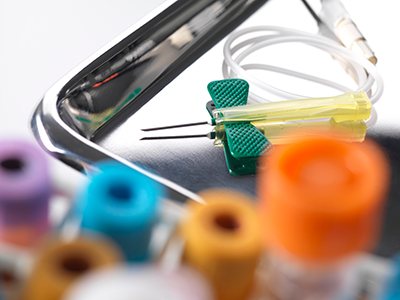
All qualified applicants are considered.
The Providence Earn-to-Learn (ETL) Phlebotomy Training Program was designed to remove financial barriers associated with obtaining education and training to enter health professions. Costs for the program are waived with the work contract agreement between the participant and hiring location. Textbooks and training supplies are provided by the employer.
* Those selected to train in Washington will be expected to apply and pay for the required WA State MA-P license during the second week of class (approximately $150).
** For the Spokane, WA, self-pay option (not ETL), please visit the Providence Health Training website to see current tuition costs.
Clinical student interns are required to adhere to all hospital/site and laboratory dress code requirements. No specific uniform is required. Scrubs are acceptable. Appropriate shoes are required and must be closed toe, closed heel, rubber-soled, and water impermeable (no athletic shoes). Not having proper footwear will exclude you from classroom and clinical training.
The training wage is site-specific but is generally less than the wage of a working phlebotomist.
Classroom learning experiences occur full-time (40hrs/wk) during weekdays. Clinical training may occur across all shifts and days of the week depending upon the clinical site. Some sites require a full-time commitment (40hrs/wk) during clinical training. Please inquire with the hiring site for the clinical training schedule.
Yes, if participating in the Earn-to-Learn (ETL) program. After training is complete, graduates apply to open phlebotomist positions. Some locations have float pool options where graduates may work as a supplemental phlebotomist until permanent positions become available.
* Participants in the self-pay training option are not guaranteed a job but can apply at any location of their choosing.
Washington State Medical Assistant-Phlebotomy licensure is required for all phlebotomists working in WA State. Interns remain in Clinical Student Intern positions until WA State licensure is active. Graduates who complete training in WA State are eligible for WA state licensure.
Phlebotomy licensure is not currently required to work in the states of Alaska, Idaho, Oregon or Montana. The program curriculum and training hours meet national and state phlebotomy training requirements.
There are multiple certification examinations available for phlebotomy. The following 6 agencies are recognized nationally and by Washington State:
American Certification Agency certification for Phlebotomy Technician
American Medical Certification Association certification for Phlebotomy Technician
American Medical Technologists certification for Registered Phlebotomy Technician
American Society of Clinical Pathology BOC certification for Phlebotomy Technician
National Center for Competency Testing certification for Phlebotomy Technician
National Healthcareer Association certification for Phlebotomy Technician